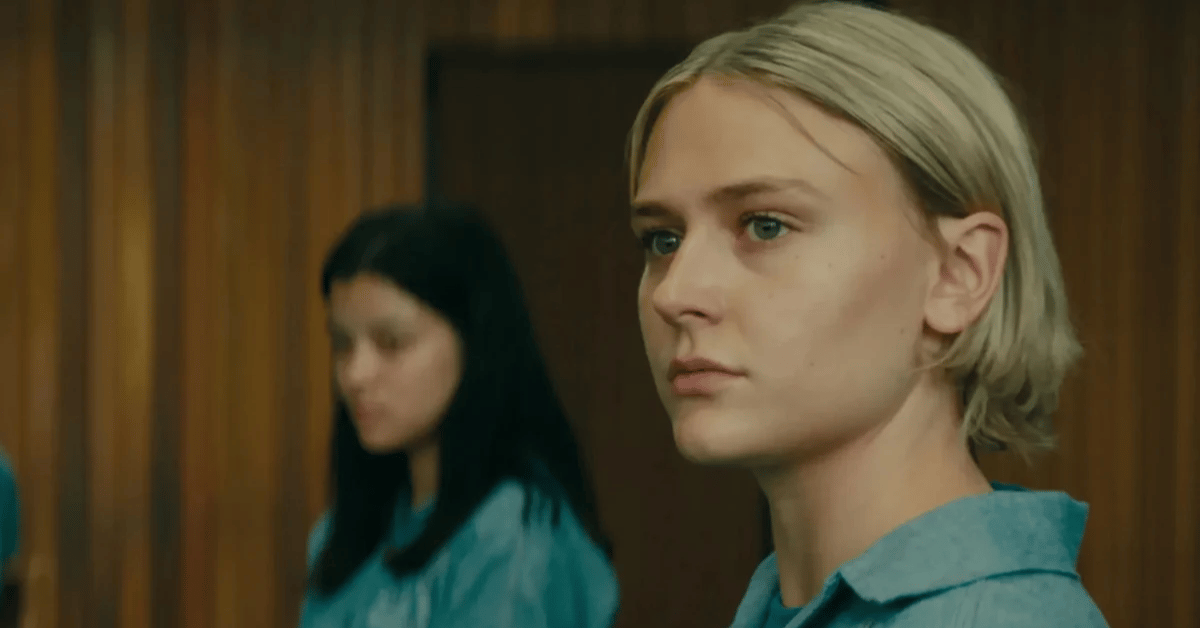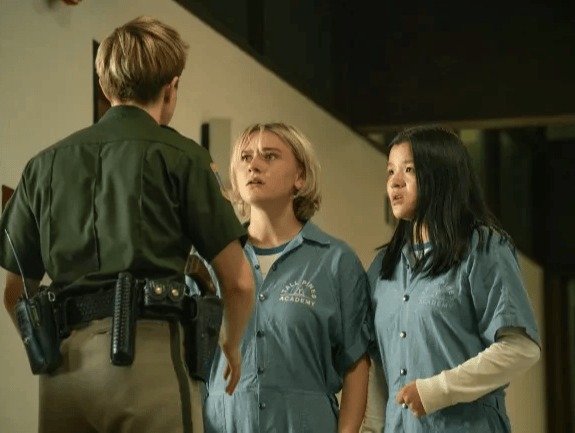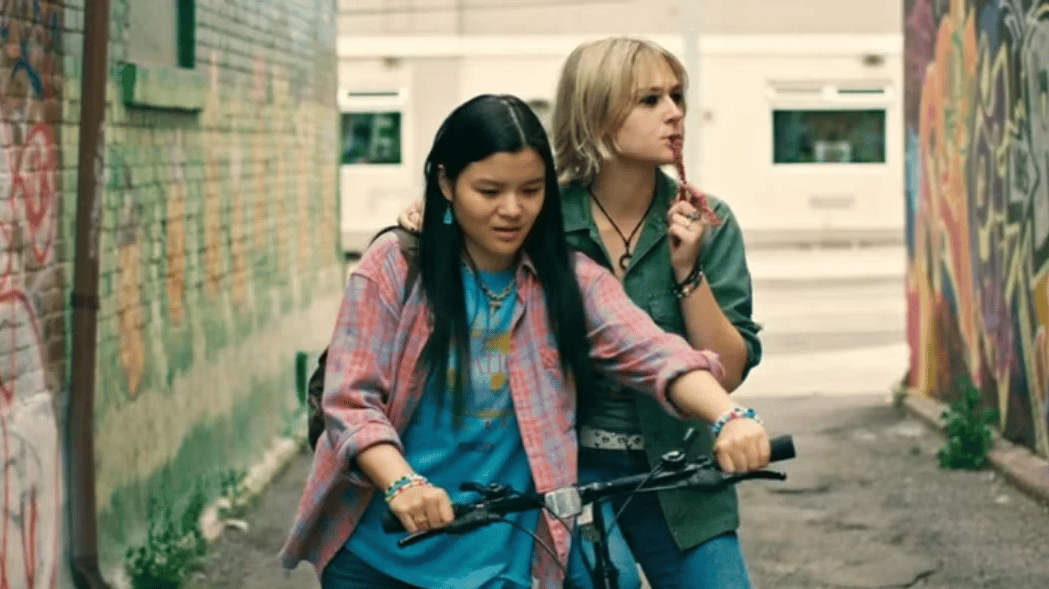
Netflix's Wayward is the cult psychological thriller that everyone is talking about right now. And for good reason.
Not only does Wayward have a stellar cast — including our very own Toni Collette and creator and writer, Mae Martin — but it also speaks to a range of universal and very pertinent themes.
One in particular, is the exploration of generational trauma in the troubled teen industry. Who's responsible for passing trauma down? How far should we go to stop the cycle? And how do we — as a community — fix the problem?
There's a lot to unpack. But amongst the troubling therapies and palpable tension, it's one of the show's quieter moments that really stayed with me.
Watch: The trailer for Wayward. Article continues after video.
In the finale episode of Wayward, after a season of witnessing the horrifying realities of Tall Pines Academy, we see a pivotal scene between best friends Abbie and Leila — who have been our primary window into the sinister world of Tall Pines Academy — following Evelyn's manipulation that had momentarily turned the best friends against each other.
































































































